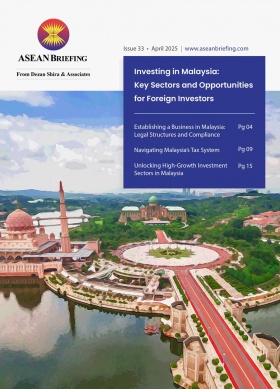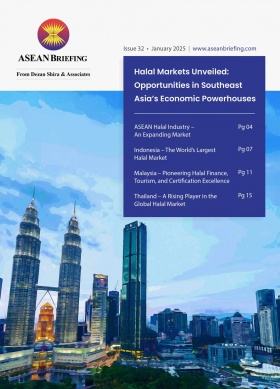Thailand’s Land Ownership Rules for Foreigners: A Comprehensive Guide
Thailand remains one of Southeast Asia’s most attractive destinations for foreign investors, offering a robust economy, a thriving tourism sector, and a favorable business environment. However, when it comes to land ownership, Thailand imposes significant restrictions on foreigners, making it essential to understand the legal framework and alternative ownership structures available. Navigating these complexities correctly ensures compliance while maximizing investment potential.
Legal framework governing land ownership in Thailand
The Thai legal system strictly regulates land ownership, primarily through the Thailand Land Code Act of 1954, which explicitly prohibits foreign individuals from directly owning land. Other key legislative frameworks include the Condominium Act, the Investment Promotion Act, and regulations set by the Board of Investment (BOI). Additionally, the Department of Lands (DOL) and other government agencies oversee land transactions, ensuring compliance with ownership restrictions.
Direct land ownership restrictions for foreigners
Foreigners are generally prohibited from directly owning land in Thailand, except under very limited circumstances, such as inheritance. Even in such cases, strict conditions apply, and land ownership is not granted indefinitely.
Alternative ownership structures for foreigners
Since direct land ownership is largely prohibited, foreigners commonly utilize alternative ownership structures to gain property rights in Thailand. The most popular methods include:
Leasehold arrangements: Long-term security
One of the most straightforward options for foreigners is leasing land on a long-term basis. Leaseholds are typically structured for 30 years, with the possibility of two renewals of 30 years each (30+30+30 structure). While leases offer security, legal protections for leaseholders can vary, and renewal is not always guaranteed unless explicitly agreed upon and registered.
Key aspects of leasehold arrangements include:
- Legal protections: Properly registered lease agreements grant secure possession rights.
- Registration requirements: Leases over three years must be registered with the Land Department.
- Renewal and inheritance issues: Future renewals are subject to government approval and are not automatically granted.
Condominium ownership: A popular choice for foreign investors
Foreigners can legally own condominiums in Thailand under the Condominium Act, provided that foreign ownership does not exceed 49 percent of the total floor space in a given condominium project.
To purchase a condominium, foreigners must:
- Ensure the project has available foreign ownership quota.
- Provide evidence that funds for the purchase were transferred into Thailand in foreign currency.
- Follow the official transfer process, including documentation and verification at the Land Office.
While condominium ownership is a legally sound investment, resale restrictions apply, and properties must comply with local regulations.
Thai limited company: Indirect land ownership
Some foreign investors establish a Thai Limited Company to acquire land, with Thai nationals holding at least 51 percent ownership as required by law. However, using a nominee structure where Thai shareholders act as placeholders is illegal and can result in severe penalties.
Before considering this option, investors should be aware of:
- Legal structure requirements: The company must engage in genuine business activities.
- Ownership limitations: Foreigners can hold up to 49% of shares in a standard Thai company.
- Compliance issues: The authorities frequently investigate companies suspected of being nominee structures.
Usufructs and superficies: Legal land use without ownership
Foreigners unable to own land directly can use usufructs and superficies to gain land-use rights.
- Usufructs provide the right to use land for a specified period without owning it, often for lifetime use.
- Superficies permit foreigners to own buildings on land they do not own, ensuring investment security while leasing the land itself.
Special Economic Zones and BOI incentives
Thailand has designated Special Economic Zones (SEZs) and investment incentives through the Board of Investment (BOI) to attract foreign capital. Under specific BOI promotions, foreign companies may be granted rights to own industrial land for business operations.
Key investment areas benefiting from BOI incentives include:
- Eastern Economic Corridor (EEC): A priority area for foreign investment in technology, logistics, and high-value manufacturing.
- Industrial Estates: BOI-supported projects allow foreign companies to acquire land under specific conditions.
- Tax Incentives and Permits: Additional benefits include tax breaks, work permits, and streamlined investment approvals.
Avoiding common pitfalls and risks
Navigating Thai property laws can be challenging, and foreign investors should consider common risks. Using nominee structures, where Thai nationals hold shares on behalf of foreigners, is strictly illegal and can lead to severe penalties.
Conducting due diligence is crucial, as failing to verify land titles, encumbrances, or legal constraints may result in costly disputes. Improper lease agreements, especially unregistered or non-renewable ones, offer little legal protection and can put property rights at risk.
Strategic recommendations for foreign investors
While Thailand imposes strict land ownership restrictions, foreign investors can still find profitable opportunities by adopting well-structured investment strategies. Leveraging BOI investment programs can provide avenues for acquiring land under certain conditions, making it a viable option for those engaged in eligible industries.
Given the foreign ownership quota system, investing in condominiums remains one of the most secure legal avenues. For those looking for flexibility, securing long-term leasehold rights and ensuring proper registration can protect their interests. Additionally, utilizing usufructs and superficies allows foreigners to gain land-use rights without full ownership.








